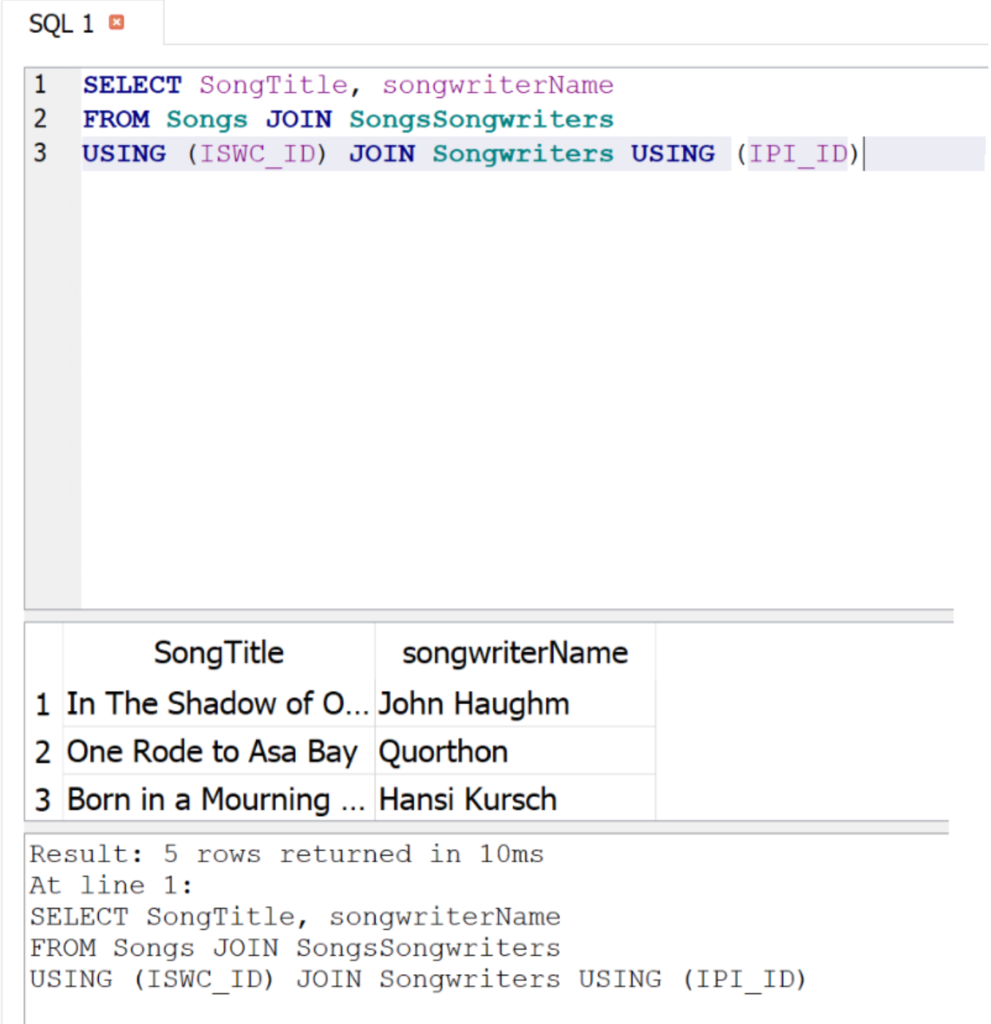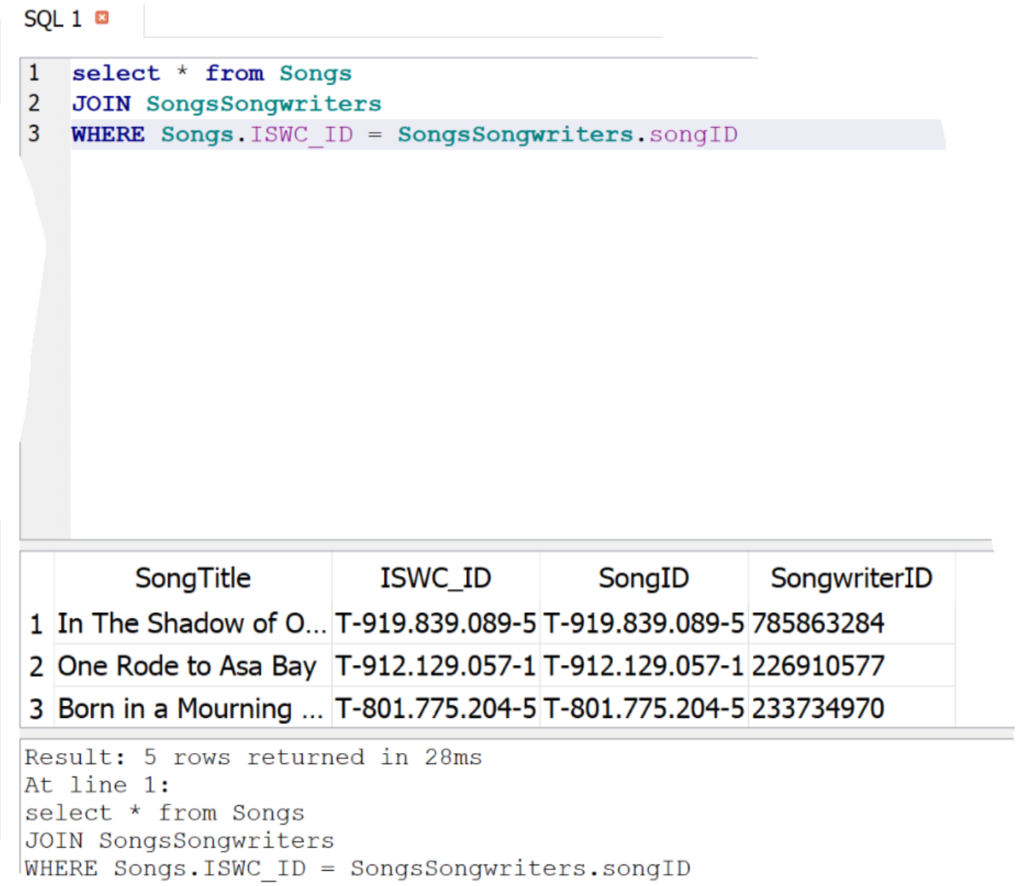For this project we used the database management program language, SQL in order to create a music database. I chose the songs from the following bands: Agalloch, Bathory, Blind Guardian, Amon Amarth, and Nile. The purpose of this assignment was to think about how we can best create the metadata for a select list of songs in a way that would showcase them in a clear and distinct way while maintaining their interoperability. We also used Microsoft Excel to first create spreadsheets and later the Wikidata Query Service to write a SPARQL Query and link the data. I also edited some Bathory records using the metadata I generated for the SQL database.


SELECT Songs.songTitle, Songwriters.songwriterName, Artists.artistName, Recordings.recordingDate, Recordings.recordingCity, Release.releaseTitle, Release.releaseLabel, Copies.copyOwner
FROM Songs JOIN SongsSongwriters USING (ISWC_ID)JOIN Songwriters USING (IPI_ID) JOIN SongWritersArtists USING (IPI_ID) JOIN Artists USING (ISNI_ID) JOIN RecordingsArtists USING (ISNI_ID) JOIN Recordings USING (ISRC_ID) JOIN ReleasesRecordings USING (ISRC_ID) JOIN Release USING (UPC_ID) JOIN ReleaseCopies USING (UPC_ID) JOIN Copies USING (copyID)

Select Release.releaseCountry, Recordings.recordingTitle, Artists.artistName
FROM Release JOIN ReleasesRecordings USING (UPC_ID) JOIN Recordings USING (ISRC_ID) JOIN RecordingsArtists USING (ISRC_ID) JOIN Artists USING (ISNI_ID) JOIN SongWritersArtists USING (ISNI_ID) JOIN Songwriters USING (IPI_ID) JOIN SongsSongwriters USING (IPI_ID) JOIN Songs USING (ISWC_ID)
WHERE releaseCountry LIKE “%Germany%”
WIKIDATA:
WIKIDATE REFLECTIONS
Wikidata provides the means for effective control of collections. Wikidata’s ability to connect many languages (mostly the main ones) is progressive. Since (almost) anyone can edit or add what they know, whether they’re from Michigan or Bali, this limits boundaries. There is a bountiful variety of property+value options which, through specialized queries/linked data, can provide an interesting and specific arrangement of information (such as zoos in Germany) in a matter of milliseconds. The methods of querying are extremely user friendly, which may be what’s missing within the fields of data structures and computer programming as these often take a lot of time to learn and are daunting to the average person. Requiring the use of references assures that each piece of data is supported by a larger database. And since Wikidata is an open database, this promotes open access which allows anyone to pull information from it as a way to enrich their own collection or research. It is essentially a database database. I think it would be useful to have a list of the different properties one can use instead of having to look at other examples, especially since the amount of different properties there are are in the thousands (from flags to ISCO occupation codes). Within the Wikidata framework, the kinds of projects I envision are those that can essentially take “White/Christian/Western” out of the heart of global information. A summation of all cultural heritage would be an ideal project, and would contribute to Wikidata’s goal of collecting all the world’s knowledge (which as the same goal as the Documentalists). However, this would be an impossible goal to reach completely because of the various knowledge organization systems in the world that are unable to fit within Wikidata’s framework. Wikidata actually has a project specifically for preserving cultural heritage that is at risk of being forgotten or pushed out of the internet presence. Another project I envision is of medical information, one that could connect all the hospitals in the world based on their various characteristics, such as specialties, awards, esteemed doctors, budgets, etc. This could better organize them based on the individual users needs, either for personal purposes or research purposes. It doesn’t have to be just medical, but political, nautical, historical, scientific, philosophical, etc.
Tools used: SQL, Wikidata, Microsoft Excel